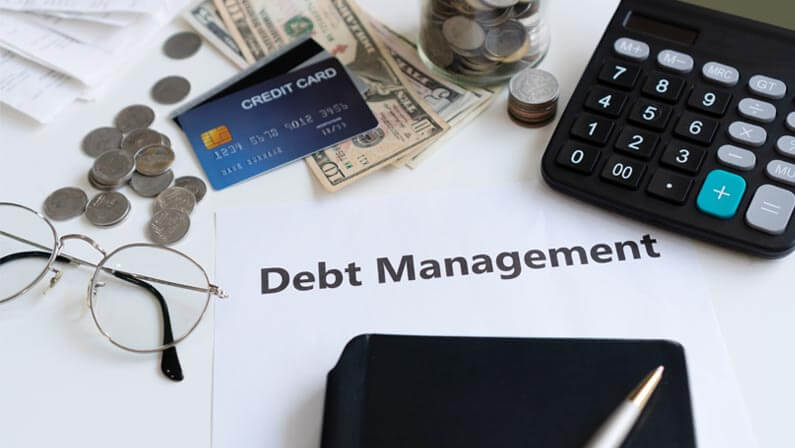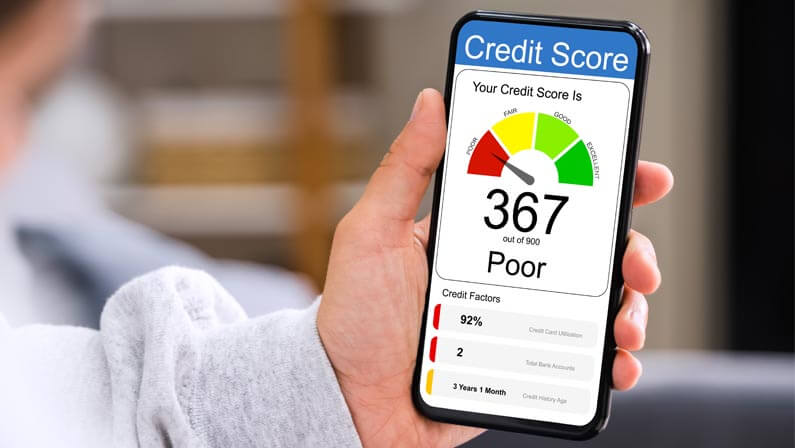Should You Pay Off Debt or Invest
James Leon
06/22/2022
Financial Literacy

Is paying off debt better than investing? Debt can be a valuable tool in your financial arsenal, but it’s important to weigh the benefits and drawbacks of each option carefully before making a decision. Paying off debt can save you money in interest payments over time, but it can also reduce your available funds for other investments.
On the other hand, investing your money can provide you with potential long-term returns, but there is also the risk of losing all your investment capital. This article will help you decide if paying off your debt is a better option for your personal finance management.
Should you pay off the personal loan or invest
When it comes to personal loans, there are two main options: pay them off or invest them. Paying off the loan is the obvious choice for many people, especially if they have a high-interest rate on their loan. However, investing money may be a better option in some cases.
There are a few things to consider when deciding whether to pay off a personal loan like a car loan or invest the money as follows:
- The interest rate on the loan: If the interest rate is high, paying off the loan is likely to be more beneficial than investing the money.
- How long you will have to wait before you see a return on your investment: If you have a low-interest rate on your loan and you can afford to wait until you see a return on your investment, investing may be a better option.
A loan from the government can be a viable option for those who are likely to lose their job. If you plan on using your loan for an emergency, it is probably not a good idea to pay it back. If you have little or no debt and are planning on going to school, a loan may be good for you. You can use the money to pay off certain expenses, such as tuition.
If you have a low-interest rate and a high credit score, you may find that the interest rates are not as high as they seem. Most lenders will look at your income and employment history. The application process can be a long and tedious one. But the benefits are more than worth it, especially if you know that you will be able to pay the loan back within a year.
There are several places where you can get student loans. These include:
- Federal student loan programs
- Private lenders
- Student loan guarantors

Should you pay off your payday loan or invest
When you’re strapped for cash, a payday loan can seem like a lifesaver. But should you really be paying off your payday loan? Or would your money be better invested elsewhere?
There’s no easy answer, but here are some things to consider:
- If you have high-interest credit card debt, it may make more sense to pay off your payday loan first. That’s because the interest on credit cards can be much higher than the interest on payday loans.
- If you don’t have any high-interest debt, you may want to invest your money instead of paying off your payday loan. Investing can provide you with a return on your investment, while payday loans typically charge a fixed rate of interest.
It’s important to remember that investing involves risk.
Should you pay off credit cards or invest
There is no one definitive answer to the question of whether you should pay off credit cards or invest. Both options have benefits and drawbacks that must be weighed against each other on a case-by-case basis.
One argument for paying off credit cards is that doing so will reduce your overall debt burden, which in turn will improve your credit score. Another argument in favor of paying off credit cards is that the interest rates on those cards are often much higher than the interest rates on investments, so it makes sense to clear that debt before investing your money.
On the other hand, some long-term financial experts argue that you should invest rather than pay off credit cards, especially if your investment options offer a higher rate of return than the interest rate on your credit card.
Below are your options for paying off your credit card debt:
Debt Management Plan

Debt management is the process of organizing and managing debt. A debt management plan (DMP) is a popular way to help manage debt. A DMP is a formal agreement between you and your creditors to pay back your debt in a fixed amount of time.
There are several benefits to using a DMP:
- You’ll have one monthly payment instead of multiple payments.
- Your interest rates may be lowered, which will save you money on your total debt amount.
- You may be able to get out of debt faster because you’re making headway on your principal balance each month.
- Creditors may be more likely to work with you if you have a DMP in place.
- You may be able to save more money by using a DMP.
Debt Consolidation to Improve Credit

Debt consolidation is among popular debt relief options. It is the process of combining several loans or debts into one loan. This can be done with a personal loan, a home equity loan, or a credit card.
The goal of debt consolidation is to improve your credit score by reducing your overall monthly payments and interest rates. It can also make it easier to keep track of your payments and ensure that you are making progress on paying off your debt.
Should you pay off your mortgage or invest
The decision to pay off a mortgage or invest can be a difficult one. While there are many factors to consider when making this decision, there is no easy answer.
Here are factors to consider:
- How long do you plan on staying in your home? If you plan on staying for a long time, it may make more sense to pay off the mortgage. However, if you plan on moving soon, investing may be a better option.
- How much interest you are you paying on your mortgage? If the interest rate is high, it may make more sense to pay off the mortgage sooner. However, if the interest rate is low, investing may be the better option.
Of course, it is important to remember that investments involve risk and may not provide as great of a return as you hope.
Should you pay off your house loan or invest
In the United States, homeownership is seen as a key part of the American Dream. The idea of buying a home and paying it off over time is one that many people aspire to. But should you actually pay off your house loan? Or is it better to invest that money elsewhere?
There are pros and cons to both options. Paying off your mortgage can give you peace of mind and eliminate the need to make monthly payments. It can also boost your credit score, which could come in handy if you want to take out another loan in the future.
However, investing your money instead of using it to pay off your mortgage could potentially yield higher returns. If you have a high-interest mortgage, you may be better off investing your money in a stock market or elsewhere and then using that extra cash flow to pay off your loan more quickly.

Should You Use Investments to Pay Off Debt?
Debt can be a burden, but it doesn’t have to be. There are many ways to get out of debt, and one of them is to use your investments to pay off your debt. This can be a great way to get rid of your debt quickly and effectively. However, there are some things you need to consider before you use your investments to pay off your debt.
What Are the Benefits of Using Investments to Pay Off Debt?
- If you have high-interest debt, it can be difficult to find the money to pay it off. However, using your investments to pay off your debt will give you a little extra cash flow each month that can be used to pay off the debt. This will help you reduce the amount of interest you’ll owe on your loan.
- You’ll be able to build a nice little emergency fund. Your emergency fund will give you the ability to handle unexpected expenses, like an auto repair or a car accident, without having to dig into your savings account.
Final Thoughts
Debt can be a valuable tool in your financial arsenal, but it’s important to weigh the benefits and drawbacks of each option carefully before making a decision. Paying off debt can save you money in the long run, so it’s important to develop a plan that will help you achieve your financial goals.
If you’re struggling to pay off your debt, contact a reliable financial advisor like Centennial Funding for advice on when to invest vs pay off debt.
Share post:
Latest Articles
- « Previous
- 1
- 2







